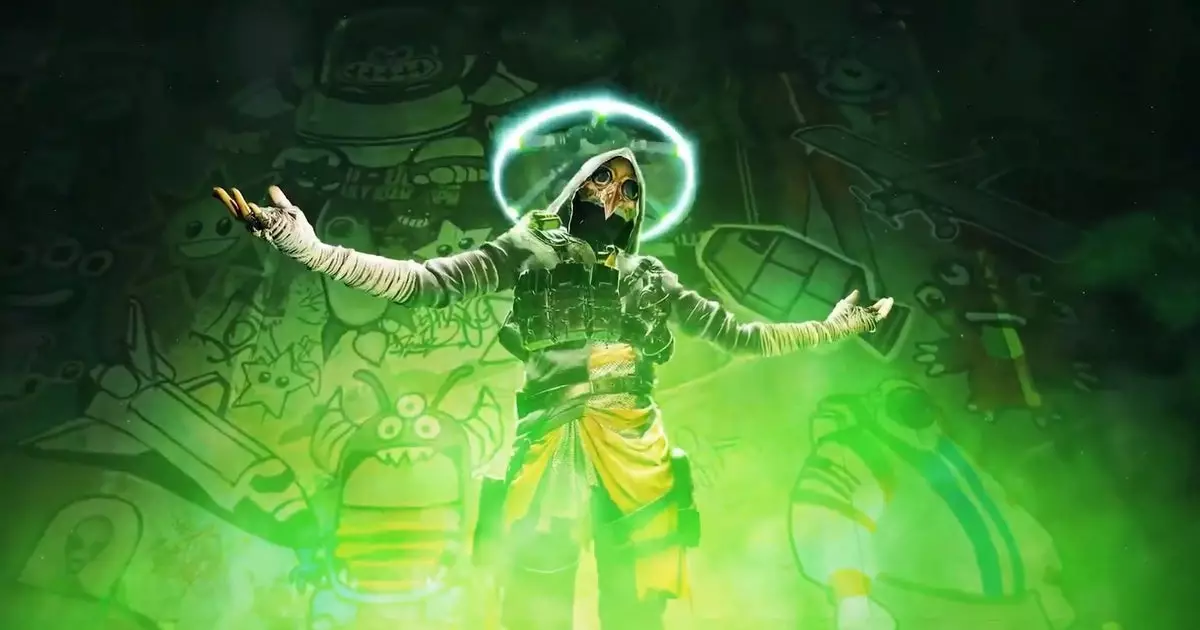The recent decision by Ubisoft to discontinue XDefiant, their PvP shooter, serves as a stark reminder of the precarious nature of the gaming industry, particularly in the fast-paced landscape of free-to-play titles. With the death of XDefiant, Ubisoft finds itself at a crossroads, facing significant layoffs and ongoing scrutiny over its long-term strategy. This article delves into the implications of this closure, examining the lessons to be learned, the industry’s shifting dynamics, and the potential futures for both the displaced employees and the company itself.
Launched with banners high and aspirations to carve a niche among established FPS games, XDefiant struggled to maintain a sustained player base. Ubisoft’s statement by Marie-Sophie de Waubert highlights a crucial concern in the gaming market: the immense difficulty of attracting and retaining players in a saturated free-to-play arena. Rather than a humble failure, the situation unveils a broader systemic issue where even major players like Ubisoft can miscalculate audience interest and market demands.
At its core, XDefiant was ambitious. It aimed to blend elements from the company’s rich portfolio, tapping into characters and mechanics familiar to fans of Ubisoft franchises. Yet, the game’s failure to distinguish itself from an abundance of like-minded competitors underscores a common pitfall: the assumption that leveraging existing fan bases and franchise knowledge is sufficient for success. Ubisoft’s proactive steps in launching the game may have masked underlying issues, but ultimately, they exposed the vulnerabilities inherent in their development strategy.
The human impact is perhaps the most profound aspect of this scenario. The loss of approximately 277 jobs from studios in San Francisco, Osaka, and Sydney speaks volumes about the unforgiving realities developers face in the gaming landscape. While some positions may transition to different roles within Ubisoft, the termination of roles—often softened by terminology such as “departing”—remains a harsh reality for many affected employees. Such terminology can foster a disconnect between corporate decisions and the personal lives impacted by those choices.
Moreover, the timing of Ubisoft’s decision reflects poorly on its leadership and management culture. In a competitive market, where teams are asked to innovate and iterate, a quick pivot to layoffs reveals the disconnect between ambition and execution. The leadership’s resolve to sustain the Games-as-a-Service model, despite setbacks, can be viewed as a short-sighted approach that prioritizes strategy over employee welfare.
Ubisoft’s insistence on continuing its focus on Games-as-a-Service, despite the clear failure of XDefiant, raises questions about the lessons the company has or has not learned. Historically, titles like Rainbow Six Siege have risen from the ashes to achieve long-term success, largely due to responsiveness to player feedback and a commitment to updates. However, the disappointment surrounding XDefiant illustrates that not every game can or should follow the same trajectory toward redemption.
The dismissal of XDefiant, which occurred just months after executives promised a brighter future, also speaks to the increasingly volatile relationship between gaming studios and their fanbase. Executive Producer Mark Rubin’s optimistic claims soon fell flat as reality set in. It further opens the conversation about transparency in the gaming industry—could better communication have softened the blow for players and employees alike?
As digital ecosystems evolve, the industry is witnessing a shift toward diversification and resilience. Companies that once thrived on the Games-as-a-Service model may need to reevaluate their strategies in light of discontented players and failed titles. The XDefiant saga is a case study in missed opportunities for innovation and engagement. Instead of adapting, Ubisoft’s management doubled down on its previous strategies, which may lead to further crises in the future.
The reality is that the gaming market is maturing, and so are its consumers. Players today demand not just engaging gameplay but also transparency, value, and community engagement. Future titles will need to embody these principles if they are to avoid the fate of XDefiant.
Ubisoft’s closure of XDefiant offers a dual narrative of corporate ambition and human consequence. The decision to end a game is never simply about the title itself, but reflects deeper trends within the gaming industry. As gaming becomes an ever-evolving landscape, studios must take heed of the lessons from XDefiant, prioritizing authenticity, responsiveness, and genuine connection with their audiences and their teams. Only then can they hope to navigate the tumultuous seas of this demanding market.


Leave a Reply